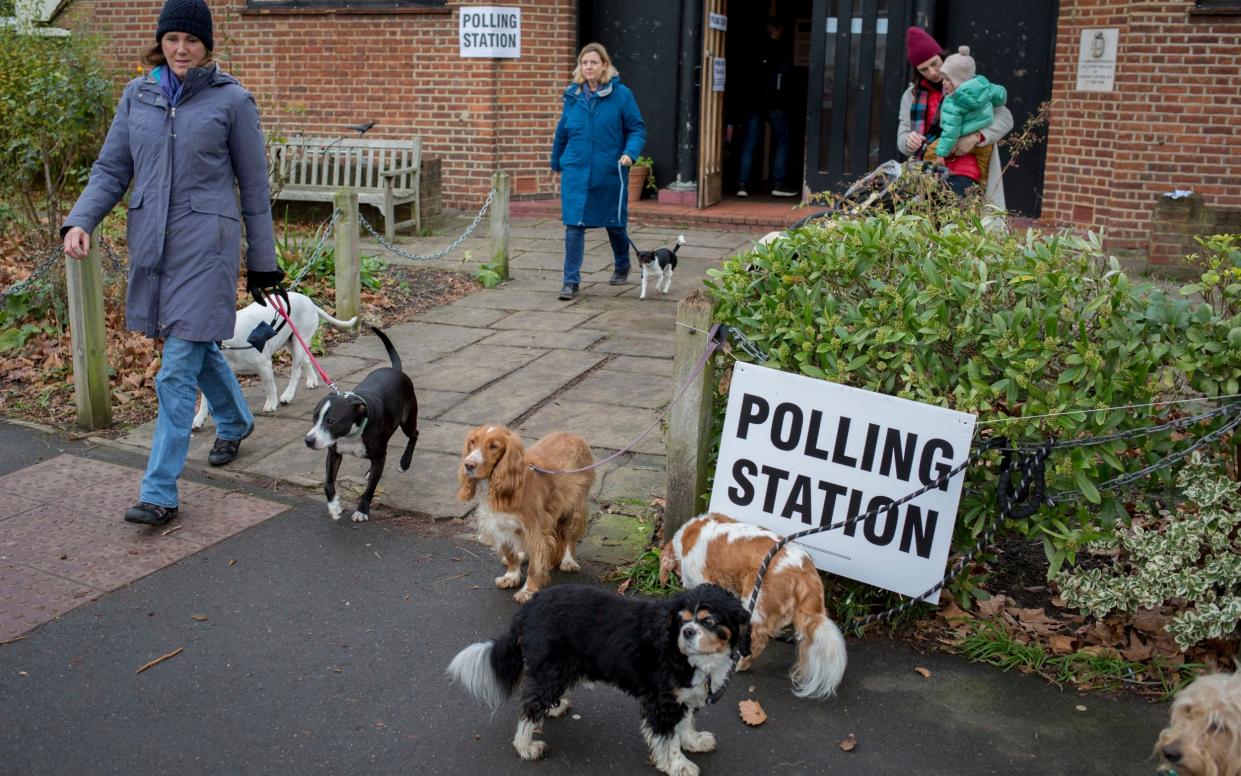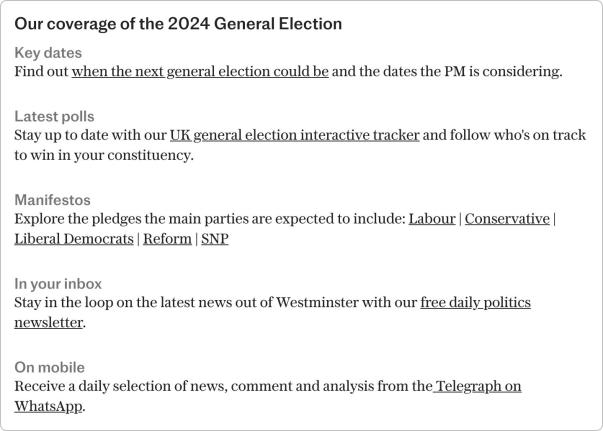Suburban women in their sixties could decide the next election

Suburban women with an average age of just over 60 could prove decisive in shaping the outcome of the next election, a think tank has said.
A new report published by More in Common, based on polling of more than 3,000 people, suggested voters who backed the Conservative Party in 2019 but are now undecided will determine whether or not Labour has a majority in the next Parliament.
The analysis, titled Behind the Voting Intention, also found those who have abandoned the Tories in favour of Reform UK are highly unlikely to return to Rishi Sunak’s party.
Twenty-three per cent of those surveyed voted Labour and plan to do so again, while 22 per cent intend to stick with the Conservatives and a further five per cent planned to switch from the Tories to Labour.
Six per cent said they voted Tory in 2019 but were now undecided. Out of this group, a greater number said that they did not know how they would vote than those who were planning to switch to Labour under Sir Keir Starmer.
Luke Tryl, the director of More in Common, said: “They are overwhelmingly female, Conservative-to-don’t-know voters, and Conservative 2019 voters who are now undecided are overwhelmingly female, around 70 per cent, older than average, 61, and disproportionately likely to live in small towns and or suburbs.
“Who these voters opt for will decide the scale of a Labour victory. While winning back this group won’t be enough to keep the Conservatives in power, they will determine the size of any likely Labour victory, from a hung Parliament to a landslide.”
Swing voters
Voters planning to switch from the Conservatives to Labour are among the least likely to support tax cuts and instead favour greater investment in the NHS and other public services.
Among supporters of Reform, only 26 per cent said they would back Mr Sunak in the event that Richard Tice’s party did not stand in their seat or in the event of a deal with the Tories, something Mr Tice has repeatedly ruled out.
Reform voters were also the most likely to support the abolition of the House of Lords, a position also backed by a majority of Labour voters.
“What that tells me is that Reform UK voters aren’t simply Conservatives, in fact they’re not looking to conserve,” Mr Tryl said. “And they are not in the mood to be wooed back by the Conservatives – they are anti-system voters, who want to send a message to the political establishment.”
The report found that none of the party leaders were currently impressing voters, with Labour supporters far more likely to back Sir Keir’s party to vote the Conservatives out of Downing Street rather than strong affection for Labour itself.
Sir Keir’s recently abandoned pledge to borrow £28 billion a year to invest in green projects polled as the second most popular policy among Labour voters, in a sign Sir Keir may have alienated at least some of his supporters through the U-turn.
Mr Tryl also suggested Labour was unlikely to retain its current levels of support if its leader entered Downing Street later this year.
“Given the breadth of the Labour coalition, I struggle to see the glue that keeps them together when things get tough in government.
“He’s got this unwieldy coalition which is brought together off the back of people wanting to get rid of the Tories, but how does he keep them together once the Tories are out?”


 Yahoo News
Yahoo News 
